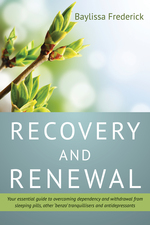 One of the best book I have read on mental health has to be Lost Connections: Uncovering the Real Causes of Depression – and the Unexpected Solutions by Johann Hari. I can strongly recommend the book, which focuses on a ‘radical’—and very sensible way—of viewing depression and overcoming the problem.
One of the best book I have read on mental health has to be Lost Connections: Uncovering the Real Causes of Depression – and the Unexpected Solutions by Johann Hari. I can strongly recommend the book, which focuses on a ‘radical’—and very sensible way—of viewing depression and overcoming the problem.
Depression is NOT caused by a chemical imbalance in the brain, as is argued by drug companies and many biologically-oriented psychiatrists and large numbers of doctors. Moreover, there is little, if any, ‘genuine’ scientific evidence that ‘antidepressants’ alleviate depression. Johann Hari talks about social factors that cause depression and considers new socially-related ways of alleviating the problem. I will be talking about the book more in a future blog.






